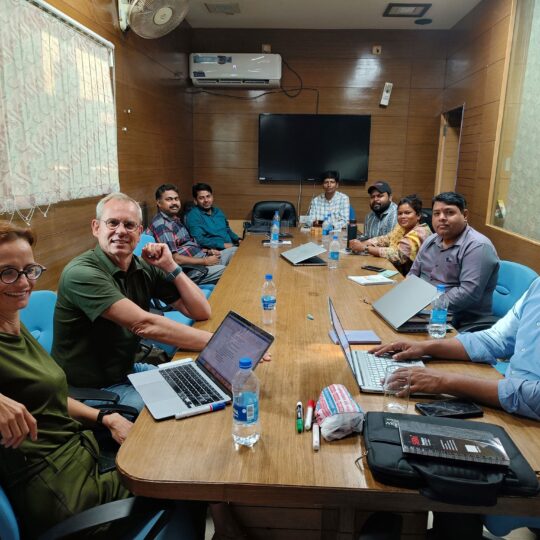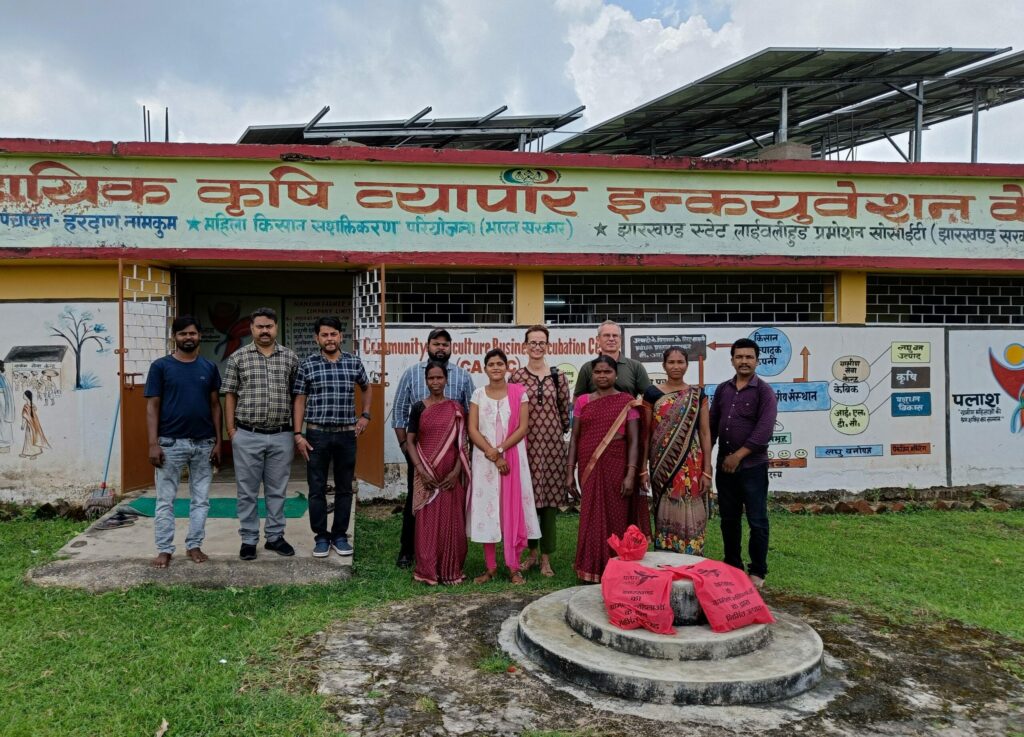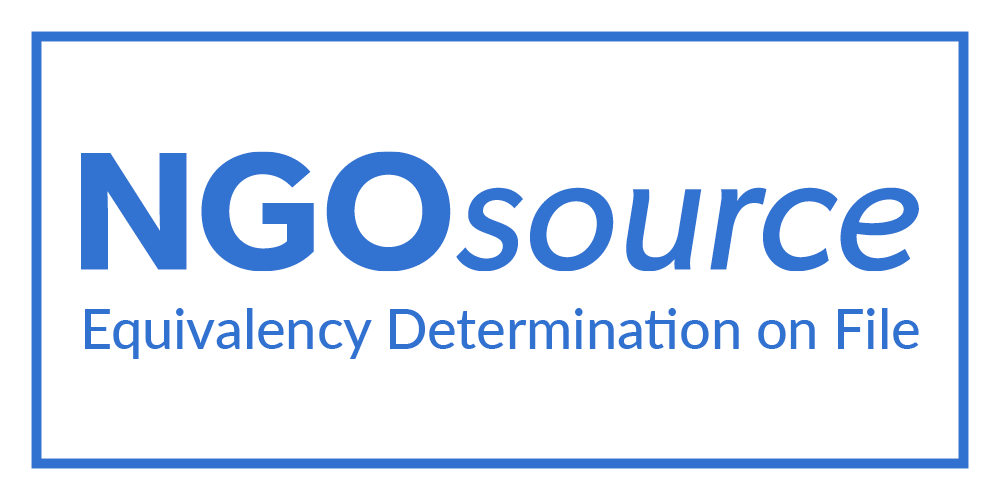During an energetic workshop one Jharkhand state district manager asked another district manager, “Can we outsource processing units to you since your district has the machinery?”
“Yes, we have the processing units, but much less farm produce,” the other district manager replied. “Could we procure material from your district’s raw material collectivization unit?”
Information-sharing conversations like these between district managers occurred to close loops during a recent five-day supply chain workshop that a Women on Wings team led for the Palash brand of India’s Jharkhand State Livelihood Promotion Society (JSLPS).
Mapping out a supply chain is essential to understand the quality and flow of products and services from their origin to the end user. Women on Wings was there to facilitate this bird’s eye view of all the critical gaps, materials, processes, people, and machinery involved in a supply chain. Key people involved can now make decisions to move forward with confidence.
Planning for a pilot
Women on Wings Zeenita Patra, logistics and supply chain expert Germaine van Teeffelen and engineering expert Hans Vermeulen spent the workshop’s first two days, supply chain mapping with nine JSLPS representatives from Bero block, Ranchi district and the Jharkhand state team. They mapped out steps to understand a government institutional supply pilot project’s process, figure costs, bottlenecks and vulnerabilities.
The pilot plan is for furnishing chili, turmeric powder and arhar dal to two secondary residential schools with 500 students in Ranchi district’s Bero block in Jharkhand. If the pilot succeeds, it will increase the number of product offerings and contracts with district institutions (schools, welfare organizations and prisons). And it generates livelihoods for rural women in Jharkhand plus supports the rural economy.
Untangling information and synchronizing
During the last three days of the workshop Women on Wings’ team collaborated closely with representatives from Jharkand state and seven of its districts namely Ranchi, Hazaribagh, Giridih, Pakur, Dumka, Chatra, and Latehar. They worked on three other specific products examined during previous workshops and field visits: mustard oil, wheat flour, and usna rice (parboiled rice). These last three days’ primary objective was to present, validate, and thoroughly align all these products’ supply chain steps such as locations, crop considerations, demand, processing capacities, current costs and transportation methods.
Connecting dots to scale
And during the workshop, a new task evolved: the state government asked the participants to rapidly synchronize and plan for a supply chain at scale to cater to their districts’ government institutional demand and do high level check within themselves which among the discussed demand-supply structures would work more efficiently in executing pilots.
Women on Wings took initiative immediately acting as facilitators for extensively mapping the processes. The Women on Wings teams was also a linking pin between the state and district teams, both from non-farm and farm support, where non-farm is responsible for managing the supply chain relying on coordination with the farm team supply of raw materials.
The participants reviewed and planned needed actions and how to expand plus coordinate current resources. They investigated, validated and fixed any data gaps that Women on Wings and JSLPS’s Palash task force team had produced in mapping the entire supply chain process from sourcing raw farm products, machinery capacities, processing, storing, packaging, costing, purchasing, hiring, payroll etc.
If the first pilot succeeds, the collaboration of these seven districts through a future pilot will become learning platforms for Jharkhand’s other 17 districts.
Jharkhand state government decisions
At the end of the workshop, the workshop team delivered a proposal to the Jharkhand state government with costs, processing capacities, and district supply potentials so the state team could make informed decisions on carrying out a well-structured supply chain, complete with pilots. Also, they included a list of challenges and solutions for this or other pilot projects supplying products to government institutions in their respective districts.
Further supply chain support
The Women on Wings team has recommended the initiation of select pilots aimed at fulfilling government demand in the participating districts. Looking ahead, during this pilot phase, the Women on Wings team will offer supply chain planning support and monitoring to the Palash team, leading to best practices that can be extended to other districts.
In March 2022, Women on Wings and JSLPS agreed to collaborate on co-creating and growing a sustainable brand, Palash. By strengthening the Palash brand, Women on Wings and JSLPS aim to create additional jobs and regular income for women in rural Jharkhand.



